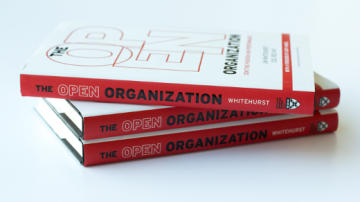
Rebecca Fernandez is a Principal Program Manager at Red Hat, leading projects to help the company scale its open culture. She's an Open Organization Ambassador, contributed to The Open Organization book, and maintains the Open Decision Framework. She is interested in the intersection of open source principles and practices, and how they can transform organizations for the better.









Authored Comments
What an honor! Totally did not expect this. :)
What a great, introspective piece. Thanks for sharing your story, Sam!